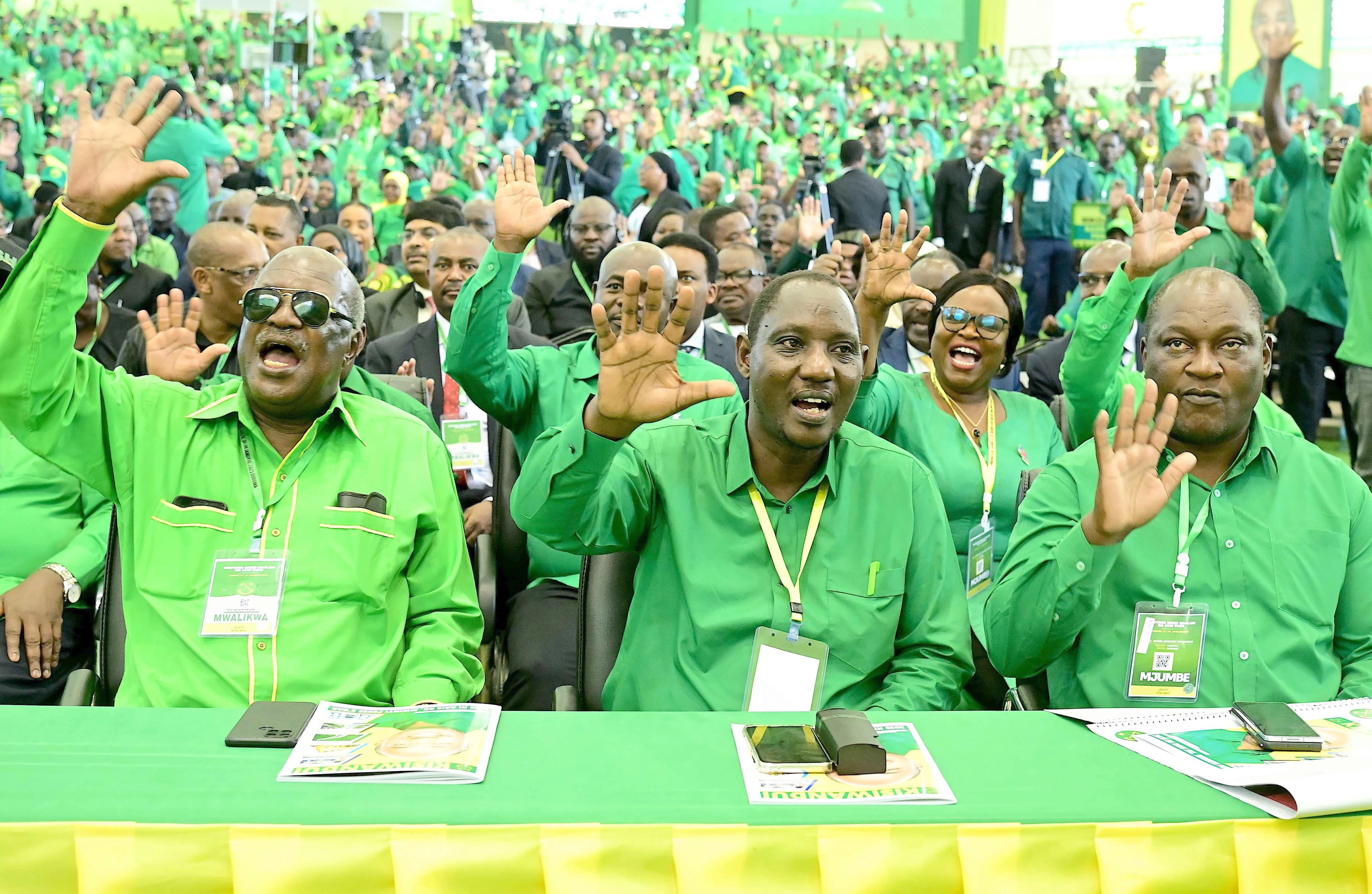Tread carefully on govt audit results, stakeholders caution

President Samia Suluhu Hassan receives the 2021/22 government audit report from Controller and Auditor General Charles Kichere at State House in Dar es Salaam on March 29, 2023. PHOTO | STATE HOUSE
What you need to know:
- According to them, rushing to take action against those named in the audit reports would violate the country’s own rules while also infringing on the rights of those persons who may have the solutions to the complaints leveled against the institutions they lead.
Dar es Salaam. With the audit findings for the Controller and Auditor General (CAG) for the financial year 2021/22 becoming public documents, stakeholders warn that while action is required, it must be done correctly.
According to them, rushing to take action against those named in the audit reports would violate the country’s own rules while also infringing on the rights of those persons who may have the solutions to the complaints leveled against the institutions they lead.
Receiving the reports at State House in Dar es Salaam last week, President Samia Suluhu Hassan expressed her disappointment with the revelations in the reports, saying, “We are killing our own country.”
Her remarks were echoed by the ruling Chama cha Mapinduzi (CCM), which called for action against the perpetrators of embezzlement of public funds and shoddy contracts.
Similarly, several Members of Parliament (MPs) voiced similar sentiments when parliamentary sessions started earlier this week.
However, the Speaker of Parliament, Dr Tulia Ackson, said on Tuesday that the modus operandi requires that the CAG’s reports be scrutinised by parliamentary committees and that those implicated will be grilled before a decision is reached.
“The reports, upon reaching this House, will be sent to relevant watchdog committees, where they will be scrutinised and heard in defence of those responsible institutions that have been implicated,” she said.
And yesterday, the chairperson for the Parliamentary Public Accounts Committee (PAC), Ms Naghenjwa Kaboyoka, echoed Dr Ackson’s sentiments, saying her committee will analyse the report in detail, grill those implicated and send recommendations to Parliament.
Speaking to The Citizen yesterday, former University of Dar es Salaam (UDSM) Vice Chancellor, Prof Rwekaza Mukandala, said those implicated in the CAG reports should be held accountable, but in a manner that follows the available laws and regulations.
“The country has laws and standing orders that spell out actions and consequences whenever they are violated or disobeyed,” he said over the phone.
The Tanzania Episcopal Conference (TEC) secretary general, Dr Charles Kitima, said an independent forensic audit or investigation should be carried out to verify what the CAG has unveiled. “Implicated persons should be given the right to respond to accusations levelled against them before they are dragged to court in order to avoid mistakes of the past where some people were judged over unverified allegations,” he said.
The president of the State University of Zanzibar (Suza), Prof Ali Makame Ussi, said generalisations about suspects in an institution should be avoided.
“Only those at the centre of embezzlement should be identified and held accountable in order to assure justice among public servants,” he said.
He said the lack of accountability has led to the repetition of incidents every time CAG reports are tabled.
According to him, the absence of discipline and fear have been at the centre of the repetition, suggesting that public servants have to upgrade their ethical standards and get satisfied with their welfare.
For his part, his UDSM counterpart, Prof Mohamed Bakari, said that under the Tanzanian context, it is impossible to have both administrative and judicial accountability.
“Appointing authorities cannot hold accountable those implicated in embezzlement. “Likewise, the country’s judicial system cannot do so, both because of the lack of political accountability,” he said.
“Without strong systems, the President, lawmakers and other leaders will keep complaining,” he added, insisting on the need to build strong systems in the country.
A Political Science and Public Administration lecturer at the University of Dodoma (Udom), Dr Paul Loisulie said Tanzanians must be willing to change their attitudes whenever they are given a chance to manage public resources.




